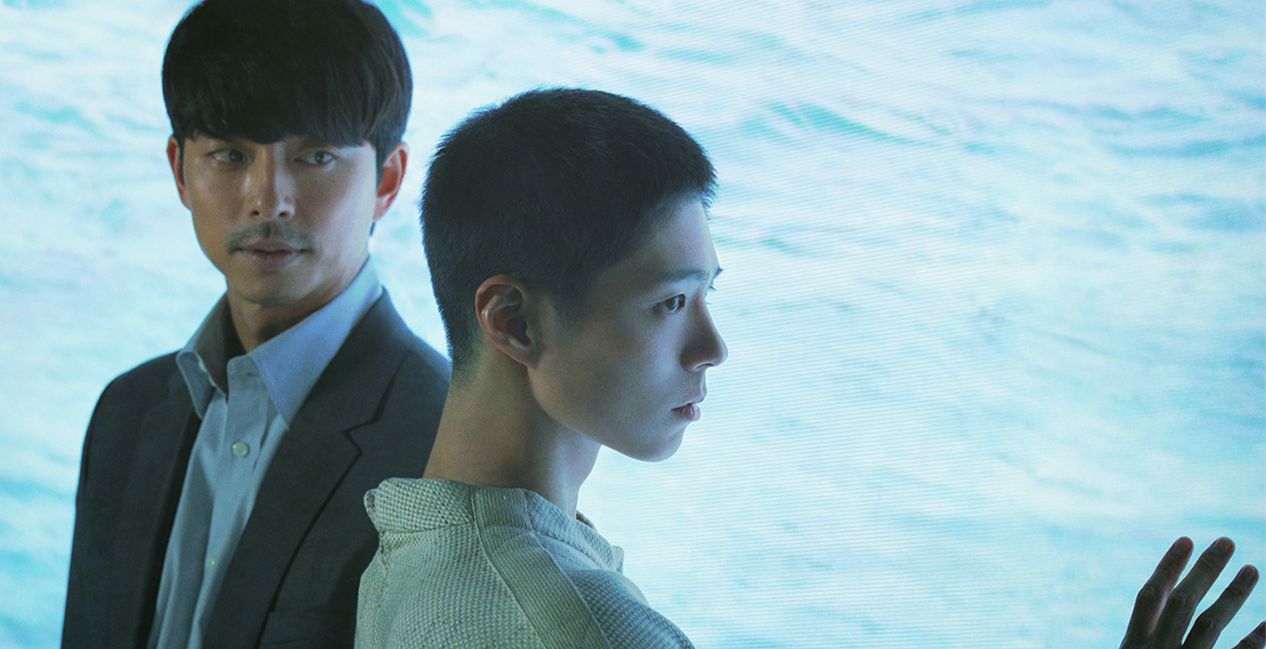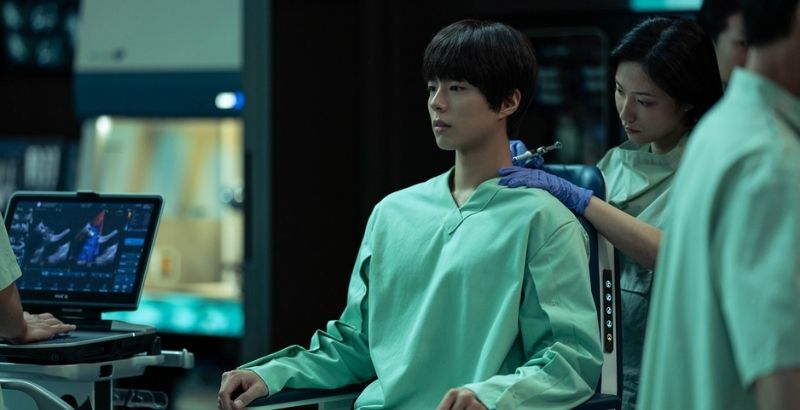Lee-Yong Ju’s science fiction film Seobok: Project Clone delves into one of the genre’s most prominent philosophical concerns: the fate of men. And even though it tends to ponder on too many ideas, it manages to create food for thought while providing jaw-dropping setpieces.
Former intelligence agent Min Ki-hun (Gong Yoo) is struggling both physically and emotionally. The regret of his past is consuming him, and a brain tumor has left him with little time to live. One day, he’s asked by former boss Ahn (Jo Woo-jin) to return to action in a secret mission involving the protection of project Seobok (Park Bo-gum), the first human clone who, besides possessing pressure-bending powers, is immortal and therefore is the key to the research that could save Ki-hun’s life.
However, what seems like a straightforward task soon puts Ki-hun in the middle of a war to possess (or kill) Seobok, which involves American mercenaries, government officials, and the laboratory involved in the research. Still unsure of who to trust, Ki-hun sticks to protecting Seobok, and together, they go on the run.
With a strong sci-fi core, Seobok: Project Clone tips its toes into the road movie genre in a second act full of ethical conundrums. From very different angles, Ki-hun and Seobok are forced to reflect on their mortality while driving through highways and cities. The former realizes that in order to be cured, Seobok has to be exploited, which is something other characters see as perfectly fine given that he’s, after all, some sort of sub-human experiment.
Does Seobok have moral rights? What are their limits? If he was created for research only, shouldn’t his suffering and exploitation be unimportant? The movie asks these questions to both the audience and Ki-hun, whose condition worsens as time goes by.
Seobok asks many questions, getting dragged down in the process

Meanwhile, Seobok learns about humanity with every interaction and blood-soaked encounter and eventually asks himself what the meaning of immortality is. Should he allow humans to stop death by researching him? As Seobok ponders on this question, the inhumanity around him grows, and soon, the true colors of our world make clear that, ultimately, only wealthy men would be able to get the ‘benefits’ from immortality.
Gong Yoo and Park Bo-gum’s beautifully nuanced performances give power to these thoughts, but they can’t stop the whole road movie section from being bogged down by the high number of philosophical queries the film lays out, none of which are thoroughly explored. Because of this, you’ll find yourself losing interest in the motivation of the characters even more due to the dull pace of the editing.
Eventually, your patience and investment are rewarded when Ju Lee-yong successfully transforms these philosophical conundrums into emotional fuel for a spectacular, action-packed third act where everything comes full circle. Aided by top-notch VFX work and sound design, as well as an extraordinary score by Jo Yeong-wook, Seobok’s powers are used in a terrifying manner.
This leads the film toward an outstanding conclusion that provides audiovisual and narrative satisfaction. Thanks to the correct development of his character arc throughout the film, Seobok’s never reduced to just a killing tool. His actions and realizations are consequences of his experiences outside the laboratory and his interactions with Ki-hun.
Seobok: Project Clone is a riveting balance of philosophy, sci-fi, and action with a hint of road movie goodness that never sacrifices its complex questions in lieu of cheap entertainment. The issues at hand are never forgotten, even when the most visual effects-heavy scenes fill the screen, and that’s something not many films of this nature are able to do.
Seobok: Project Clone is available on Digital, Blu-ray, and DVD starting February 15.
Seobok: Project Clone
-
Rating - 8/108/10
TL;DR
Seobok: Project Clone is a riveting balance of philosophy, sci-fi, and action with a hint of road movie goodness that never sacrifices its complex questions in lieu of cheap entertainment. The issues at hand are never forgotten even when the most visual effects-heavy scenes fill the screen, and that’s something not many films of this nature are able to do.







